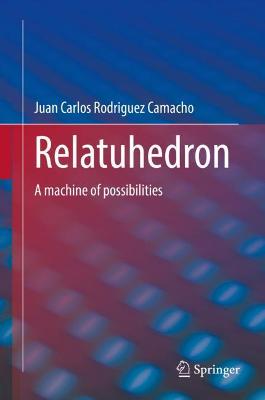MORE ABOUT THIS BOOK
Main description:
A journey of new routes of healing with/by Indigenous and non-Indigenous participants is shared under the Two Eyed-Seeing Perspective of Elder Albert Marshall. The Universal Human Right of Indigenous self-determination and Relationality are the togetherness presented in a "mangrove tree" that lives between salty and sweet waters emerging as a protective place of rich ecosystems. The relatuhedron (shapes of relationality) a co-construction of a home, a Wigwam, Long House, Maloca, Ue, crystalizes knowledge and practices in the process of individual and community healing and cultural transactions. A set of neologisms such as relatuhedron, pedagomiologies, and social grammars, is proposed to challenge our views of mental health, healing, cultural transactions, stereotypes, recovery, and public policy and include simplicities and complexities required to support Indigenous well-being. It is a "machine of possibilities" for students and professionals working with/by and for Indigenous communities. In this book healing is presented as a process through scholarly practice and reflection. Healing is a process of emergence of meaning by improving relationality with the self, nature and others, in a practical approach to socio-cultural transformations. In sum, healing is based on individual and community processes both honoring and respective Indigenous knowledge and scientific research to create endless opportunities for well-being. This book presents healing as a process of growth, a complex, dynamic and evolutive journey of transforming how we stablish and maintain relationships with the self, nature and others inside of our cultural negotiations.
Contents:
Part I. The Relatuhedron: shaping and shapes of relationships
1. The Harm Caused to Indigenous People
2. The journey on Indigenous health research
3. Two Eyed Seeing and Multiperspectives of knowledge
4. De-colonialism and Indigeneity
5. Preliminary Movements
6. Complex and simplex
7. The relatuhedron as a knowledge tool
8. Health Research and Indigenous Community Knowledge
9. Health Epistemology(ies) and Social Knowledge(s)
10. Hard Science and Soft Science
11. University health education
12. The Mining of Knowledge Shared
13. Data Knowledge and Indigenous Epistemologies
14. Power and Knowledge discursive formation
15. Relatuhedron and Social Grammars
16. What difference does this knowledge make?
Part II. Development
17. Indigenous Ethics of Shared
Knowledge
18. The macro perspective
19. A shared journey of knowledge
20. The experience of questioning as a way for learning
Part III. Knowing-Doing of Pedagomiologies
21. Multiple Ways of Gaining and Sharing Knowledge
22. Unfolding the Richness of Indigenous Knowledge
Part IV. Relatuhedron: What is Different?
23. Multiple perspectives of Relatuhedron
24. Location of new epistemology on health knowledge
Part V. Conclusion of Art-In-Progress
25. Towards a Po-ethics of concepts
26. References
Appendix A
Appendix B
Appendix C
PRODUCT DETAILS
Publisher: Springer (Springer Nature Switzerland AG)
Publication date: December, 2021
Pages: 150
Weight: 459g
Availability: Available
Subcategories: Psychology

